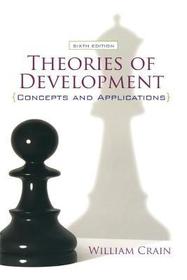
Foundations of Exercise Psychology
- Publisher's listprice GBP 88.99
-
42 514 Ft (40 490 Ft + 5% VAT)
The price is estimated because at the time of ordering we do not know what conversion rates will apply to HUF / product currency when the book arrives. In case HUF is weaker, the price increases slightly, in case HUF is stronger, the price goes lower slightly.
- Discount 10% (cc. 4 251 Ft off)
- Discounted price 38 263 Ft (36 441 Ft + 5% VAT)
Subcribe now and take benefit of a favourable price.
Subscribe
42 514 Ft

Availability
Estimated delivery time: In stock at the publisher, but not at Prospero's office. Delivery time approx. 3-5 weeks.
Not in stock at Prospero.
Why don't you give exact delivery time?
Delivery time is estimated on our previous experiences. We give estimations only, because we order from outside Hungary, and the delivery time mainly depends on how quickly the publisher supplies the book. Faster or slower deliveries both happen, but we do our best to supply as quickly as possible.
Product details:
- Publisher Fitness Information Technology (US)
- Date of Publication 1 September 2015
- ISBN 9781935412588
- Binding Paperback
- No. of pages552 pages
- Size 280x215 mm
- Weight 1282 g
- Language English
- Illustrations b/w photos 0
Categories
Long description:
The world-renowned authorship team of Bonnie G Berger and Robert S Weinberg welcome fellow highly esteemed scholar Robert C. Eklund to this third update of one of the fundamental texts on exercise psychology. In this new edition, the authors expand upon the key concepts and models of the field, focusing on the interrelationships between exercise and psychology. Students moving toward the exercise professions will gain a solid background in key issues surrounding exercise and health and make great strides forward in becoming competent and compassionate practitioners.
"Psychology can work in at least two ways, as this book clearly shows. First, we can gain psychological benefits from physical activity. This is encapsulated in the early chapters on quality of life, stress management, self-perceptions, and mood. Second, we need to understand how to assist people to become more active. This is where chapters on theories and models, motivation, determinants, and strategies come in. [. . .] In addition, psychology is also about behaviour change across different groups and settings. The authors deal with this by writing on young people, older adults, and gender issues. One size does not fit all." -- From the foreword by Stuart J H Biddle, Professor of Active Living & Public Health, Victoria University
Table of Contents:
Chapter 1: The Exciting Field of Exercise Psychology. Chapter 2: Exercise Psychology: A Historical Perspective. Chapter 3: Exercise and the Quality of Life. Chapter 4: Exercise and Self-Perception Constructs. Chapter 5: Mood and Exercise: Basic Considerations. Chapter 6: Exercise, Mood Alteration, and Self-Awareness: Multiple Relationships. Chapter 7: Stress: A Double-Edged Sword of Distress and Eustress. Chapter 8: Exercise as a Stress Management Technique: Psychological and Physiological Effects. Chapter 9: Exercise and Cognitive Function. Chapter 10: Personality and Exercise. Chapter 11: Psychology of Injury. Chapter 12: Models of Exercise Behavior. Chapter 13: Motivational Determinants of Exercise Behavior. Chapter 14: Motivational Strategies to Enhance Exercise Adherence. Chapter 15: In Search of Personal Meaning in Physical Activity. Chapter 16: Optimal Experience in Exercise. Chapter 17: Exercise Concerns: Eating Disorders, Substance Abuse, and Exercise Dependence. Chapter 18: Gender Issues in Exercise. Chapter 19: Youth Physical Activity Chapter 20: Exercise Psychology Considerations for Older Individuals. Chapter 21: Exercise Enjoyment and Mode Considerations: Taxonomy for Optimizing Subjective Well-Being. Chapter 22: Practice Guidelines for Maximal Psychological Benefits: Exercise Frequency, Intensity, and Duration.
More

How To Deal With Difficult People ? Smart Tactics for Overcoming the Problem People in your Life: Smart Tactics for Overcoming the Problem People in Your Life
6 205 HUF
5 585 HUF

Where Do We Migrate To?
7 017 HUF
6 456 HUF

Theories of Development: Concepts and Applications
54 941 HUF
43 953 HUF









